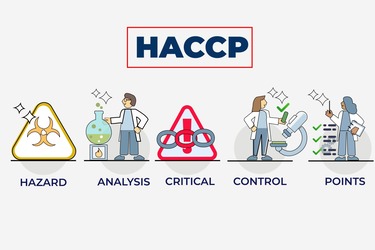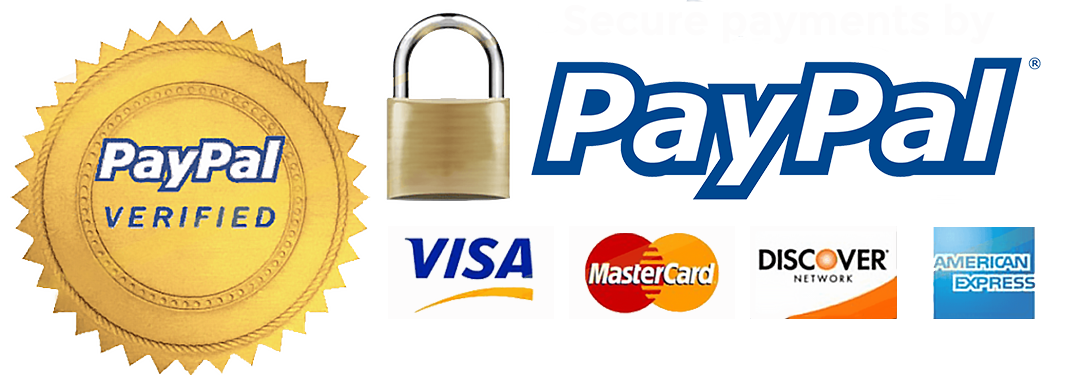
Introduction
Food is the key source of survival for any living being. Hunger struck from the need for food keeps humankind going ahead and running the daily errands. Food is a crucial part of our daily lives, and this crucial part’s sanitation and safety are a matter of concern. While eating out or even buying packed foods, we as consumers rely on certain brands and businesses to offer us the best of the services as a part of providing healthy food.
Food safety is a considerable matter to consider by neglecting if we’re taking a step close to falling sick. Food intakes affect the quality of our prevailing health. Or, in some tradition, people say,
” Basically, you’re what you eat.”
It is necessary to consider the quality of the food we’re all-consuming. Ahead in this blog, you’ll learn about the important HACCP (Hazard Analysis Critical Control Point) certification, which the federal government recommends to maintain the basic pact of safety and sanitation in the food. After getting acclaimed and approved by the HACCP authority, all the recognized eateries and brands are functioning. Nowadays, with various developments in the eatery sector, the issue of safety and sanitation is at its peak. In the era of processed ‘everything’, we as individuals have to look into the contents of anything before consuming it.
What is HACCP Certification?
Every edible or consumable product is held for verification by the HACCP certification, a risk control scheme under which registered companies are recommended to apply for this certification as it approves their status of safety and sanitation for the general stakeholders.
It is an approach to identifying factors or discrepancies affecting the final quality of any product. The HACCP certification test keeps track of manufacturing and intervenes if the product has any microbiological, chemical, or physical hazard. Microbiological hazard reflects when any product unit is contaminated with microorganisms that are unsuitable for consumption. By chemical hazard, it defines the use of any chemical which is insufficient for consumption and could lead to harmful aftereffects. Lastly, by physical hazard, it defines the presence of any foreign content, such as glass, wire, wood, etc., in the product that could affect the fluency and reputation of the brand or services among their respective stakeholders.
Certain hazards could take place at various levels. The occurrence isn’t definite, yet we shouldn’t rely on the expected situation in which certain hazards could take place. For instance, from the initial to the closing stage of a product, it has the potential to catch hazards that would affect the quality of the final product. For example, stages like raw material gathering, transportation, storage, manufacturing, distribution, and consumption are potentially vulnerable stages at which certain hazards could occur.
Talking about the literal meaning of HACCP certification, it is a certification that’d provide any hospitality or edible-based industry a green signal to expose their product to their potential stakeholders. With a HACCP certification, a brand or product is labelled as healthy and suitable to be consumed after passing prominent parameters of tests and checks. It is an ideal trademark that would provide a product with definite credibility and a fine social exposure. This certification would allow a brand to grow positively in the eye of the consumers. While on the other side, the lack and disapproval of GMP HACCP certification could also result in labelling a product as poisonous or insufficient to be consumed following the legal proceeding.
GMP (Good Manufacturing Practice) is an initial stage of HACCP that keeps a security check on food safety measures at all production levels. While HACCP has expanded its area of consideration into the cosmetic and pharmaceutical areas, GMP actively monitors the food safety measures. FDA and USDA closely control and coordinate both phenomenon
The process of getting HACCP Certification
HACCP certification does officiate the status of any running venture in terms of putting their product out to sell. Acquiring a HACCP certification could be principled by identifying the hazard, determining the critical control points, establishing critical limits, establishing a system to monitor control of the CCP, and establishing the corrective action to be taken when monitoring indicates that the particular CCP isn’t under control and establishing procedures for verification to confirm the HACCP system is working as intended.
Yet focusing on the process of getting or acquiring HACCP certification could go two ways.
Firstly, when a food-based industry seeks to get HACCP certification to have an established foundation. If a food-based industry decides to have HACCP certification, then the process revolves around external auditing. In this process, a team has been selected internally within the industry, representing the firm and product in front of the external auditors. This process could last up to 5-6 days. The audit process could be anxiety-driven for the industry, yet it is worth every effort and tension put into this whole process. After completing the audit, instruction for marketing would be instructed on HACCP certification so that audited industries could represent themselves as a HACCP certified industry.
Secondly, an individual willing to acquire HACCP certification has to prepare for HACCP certified auditors exam offered by the renowned ASQ (American Society for Qualities). It is a voluntary exam that could be given whenever an individual feels suitable. After passing this exam, one could be labelled as HACCP auditor certified and would be considered in the process of external auditing.
How long does it take to get HACCP certification? Generally, for industry, just after the successful auditing and HACCP certification guiding instructions for marketing, a food-based industry would be recognized as HACCP certified. In the case of an individual, after the HACCP auditor certification exam and evaluation, that individual would be recognized as HACCP certified.
Application of HACCP certification
HACCP cover numerous industries, monitors, and intervenes in concerning situation. Talking about the applications of HACCP certification, it highlights in which targeted industries HACCP intervenes and formulates their impact. Also, several industries seek this certification to have a recognized face of reputation and trust among their basic consumers. Industries based on cosmetics, pharmaceuticals, and food-based are single-handedly dependent on this certification.
The cosmetic-based industry looks into the matters of microbiological and chemical-based hazards and formulates a key of intervention whenever it is needed. Detecting toxic or unfamiliar contents could affect the quality of consumption and the brand itself. Approving contents and terms made the product sufficient to use by the targeted audience.
The pharmaceutical industry looks into the matter of all three types of hazards and intervenes whenever needed by following the seven principle pattern. Detecting toxic chemicals or use of any irrelevantly harmful content affecting the quality of the product would be intervened by the HACCP authority.
Majorly dependent industry on HACCP certification in the food-based industry, even if it is a voluntary certification, the product or brand becomes socially appreciable in the eye of the targeted audience after getting food safety HACCP certification. US government suggests juice manufacturers initiate a separate juice HACCP certification following the slightly variant norms yet the same formulation. And same goes with seafood product manufacturers, and they’re also expected to initiate a separate seafood HACCP certification. Also, meat and poultry-based manufacturers are expected to follow USDA HACCP certification pieces of training and guidelines to maintain safety and hygiene intact.
HACCP Food Safety Certification and its value in the hospitality industry
HACCP food safety certification is the core of building a trustful image in front of the targeted audience. Restaurants working at a large scale are strongly recommended to stay updated with HACCP certification and keep upgrading their certification after the applicability of three years.
Hospitality industries are vast, yet the food-based area is where HACCP steps in. it looks into the functioning and quality of functioning a venture reflects. It intervenes in the concerning areas if needed. Having a HACCP certification would boost the economic growth of a particular food-based venture, raise their food quality standards, promote efficient team organization, and eliminate the chances of facing any lawsuit for violating the HACCP guidelines.
How long is HACCP certification valid? For three years, certification needs to be renewed or re-audited in the span of every three years. Compliant ventures should look into renewing their HACCP certification beforehand and keep themselves updated and clean from any loopholes that’d affect their possession of certification.
Role of Federal Government in HACCP Certification
As per the federal government’s suggestion, getting HACCP certification is a voluntary take of any industry, yet they are strongly inclined towards getting every food-based industry to get HACCP certified. Schemes formulated by the federal government, such as FDA and USDA, actively participate in guiding the through HACCP terms and guidelines.
The federal government has mandated HACCP systems regulations, looking into the recent trends. Seafood and juice manufacturers have to follow regulations guided by the FDA. On the other hand, FSIS (Food Safety and Inspection Services) would direct regulations to meat and poultry-based manufacturers.
The federal government holds the right to introduce a new set of rules and regulations and impose amendments to HACCP regulations. It is a government-suggested body working solely on its subjectivities and regularities.
HACCP Certification Training and Courses
HACCP certification does have a great value in numerous industries. From a long-run perspective, HACCP certification does allow a certificate holder to get into the auditing field, hospitality industry, food safety inspection services, and research and development. Following the pandemic phase, online HACCP certification courses are available. Advanced HACCP certification holders would allow individuals to learn more intensively about the HACCP regulations.
How much does HACCP certification cost in terms of training and courses? Usually, it starts from 400$ and could go up to 3000$, and these are the trending online charges while it differs depending on the resources the authority is willing to provide. The charges probably hike up when the additional resources are intensively added to the courses.
HACCP online training and certification courses are widely available, and suggested courses do have great potential exposure and are applied wisely. Given below are some highly recommended courses that would add great value to an individual’s academic or professional strata.
- Basic HACCP Online Training and Certification: These kind of courses covers the intermediate themes of HACCP and would be beneficial for those appearing for the HACCP certification auditors exam. This course would reflect on how each principle functions and what correlative factors get affected. This course would provide a revision base for someone who is already done with preparing for the exam or for someone who is about to initiate the exam preparation.
- Advanced HACCP Certification: These kind of courses reflects on elaborative yet intensive themes correlated with the functioning of HACCP. Learn about implementation strategies and sustainable approaches to function HACCP guidelines. This course would add great value to someone’s academic and professional vitae who is planning to or has already appeared for the HACCP auditors exam.
HACCP certification has held a great value in the career basis and should be considered a relevant option to pursue ahead. For HACCP certification there are plenty of courses available online and they covers wide areas associated with HACCP certification. Such courses would add a great value to an individual’s curriculum vitae.




